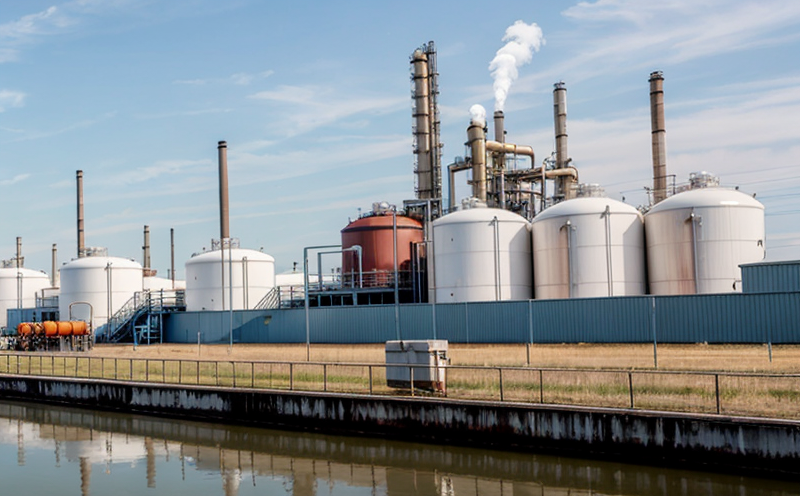UNE EN 13657 Leaching Safety Testing of Solid Materials
The UNE EN 13657 standard provides a robust framework for assessing the leachable content from solid materials, ensuring their safety and compliance with environmental regulations. This test is particularly crucial in sectors such as construction, electronics, and consumer goods where materials may come into contact with water or other substances that could potentially release harmful chemicals.
The testing procedure involves placing a sample of the solid material in an aqueous solution under controlled conditions to simulate real-world exposure scenarios. The leachate is then analyzed for specific target compounds using advanced analytical techniques like ICP-MS, GC-MS, and HPLC. This allows for accurate quantification of potentially hazardous substances that could pose risks if they enter the environment.
The test protocol accounts for various environmental conditions including temperature, humidity, and duration of exposure. These factors are critical in ensuring that the results reflect actual usage scenarios. Compliance with UNE EN 13657 is essential for manufacturers to demonstrate product safety throughout their lifecycle from raw material selection through final disposal.
Compliance also supports sustainable practices by helping companies minimize adverse impacts on ecosystems and human health. By identifying potentially harmful leachates early in the development process, businesses can make informed decisions about alternative materials or processes that reduce risk without compromising performance or functionality.
The standard's broad applicability makes it a cornerstone for industries ranging from construction to electronics manufacturing where material selection plays a key role in ensuring product safety and environmental responsibility. Understanding these nuances helps stakeholders better appreciate the importance of rigorous testing procedures like UNE EN 13657.
Benefits
- Enhances trust among end-users regarding product safety
- Facilitates compliance with international regulations and standards
- Supports sustainable practices by minimizing environmental impact
- Aids in early identification of potential risks associated with new materials
- Promotes informed decision-making during material selection
- Ensures long-term product performance while maintaining safety standards
- Facilitates seamless integration into global supply chains
- Provides data for continuous improvement and innovation
Industry Applications
| Application Area | Target Materials/Products | Main Test Parameters |
|---|---|---|
| Construction Industry | Cement, concrete aggregates, masonry products | Temperature: 50°C, Duration: 28 days, Analytes: Heavy metals |
| Consumer Goods | Sports equipment, electronics enclosures | Humidity: 93% RH, Duration: 168 hours, Analytes: Phthalates |
| Electronics Manufacturing | Circuit boards, connectors | Temperature: 25°C, Duration: Variable, Analytes: Arsenic compounds |
International Acceptance and Recognition
The UNE EN 13657 standard is widely recognized globally for its rigorous approach to assessing the leachability of solid materials. It has been adopted by numerous organizations including ASTM International, ISO, and the European Union's Chemicals Regulation (REACH). This broad international acceptance ensures that compliance with this standard is a robust indicator of product safety across diverse markets.
Recognized laboratories like ours adhere meticulously to these guidelines ensuring accurate and reliable results. Our expertise in conducting UNE EN 13657 tests allows us to provide detailed reports which not only meet regulatory requirements but also offer valuable insights into potential risks associated with the use of certain materials.





